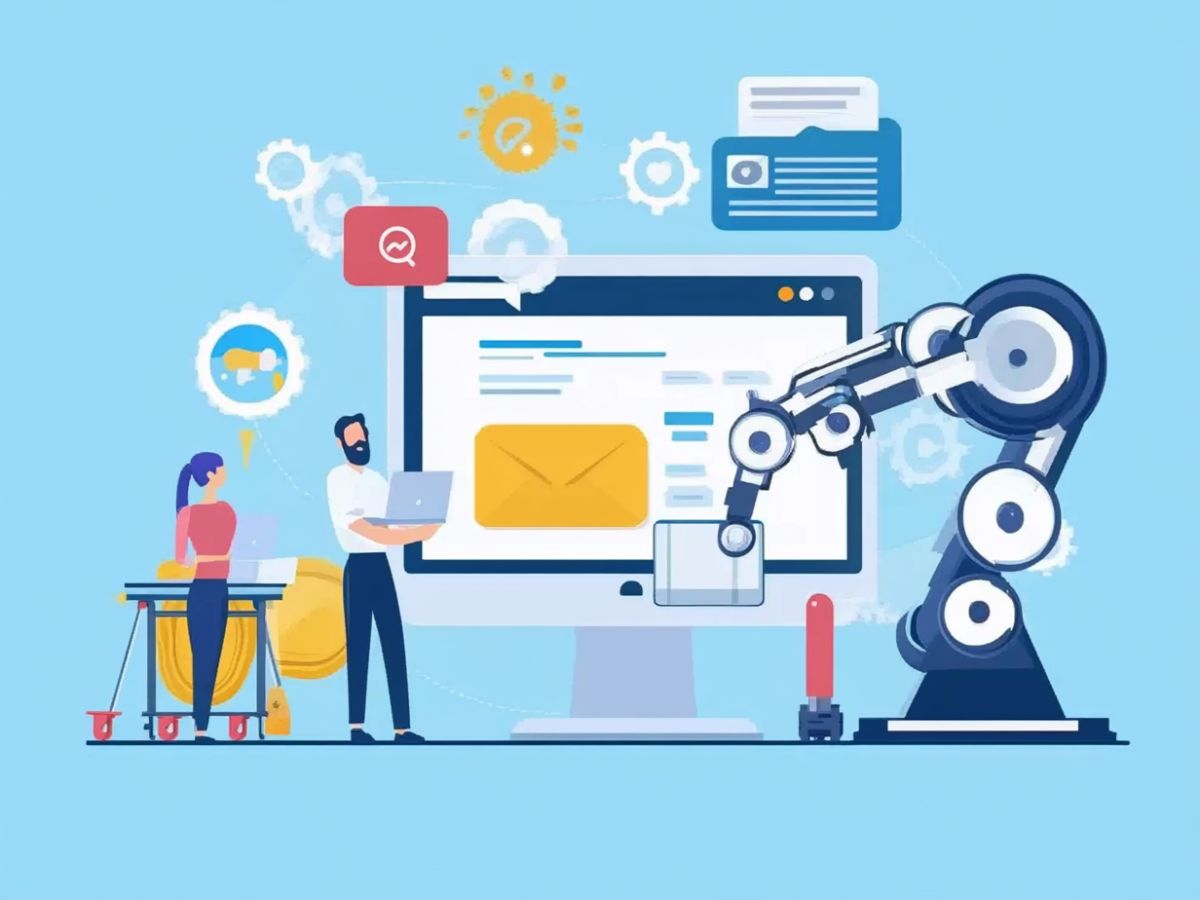What is marketing automation?
Marketing automation involves using software and technology to automate repetitive marketing tasks across various channels, such as email campaigns, social media posts, and online advertising. This technology enables businesses to manage marketing processes and multifunctional campaigns automatically across multiple channels, enhancing efficiency and facilitating more personalized communication with customers.
Why Use Marketing Automation?
The primary goal of marketing automation is to enhance and simplify communication with customers. By collecting and analyzing customer data from various channels, businesses can understand their customers’ behaviors and preferences, allowing them to engage on a more personal level. This is essential for businesses looking to enhance efficiency, improve customer engagement, better lead capture and drive better results from their marketing efforts.
Benefits of Marketing Automation
1. Save Time and Resources: Marketing automation helps save time by automating repetitive tasks, allowing your team to focus on more strategic work. The automation of emails, social media posts, and other marketing tasks frees up resources for higher-level projects.
2. Enhanced Customer Analysis: Marketing automation tools enable businesses to analyze customer data at scale. You can categorize customers by age, interests, and shopping habits, allowing for targeted and personalized communication. Integrating marketing automation with a CRM platform enhances these capabilities, helping you track customer interactions and preferences more effectively.
3. Segmentation: Segmentation plays a key role in making marketing more relevant and effective. By grouping customers based on shared characteristics (e.g., location, interests), you can tailor your messaging and timing to each segment. Automated email campaigns, such as drip campaigns, ensure that customers receive the right message at the right time.
4. Eliminate Repetitive Work: Automation reduces the monotony of repetitive tasks, allowing your team to focus on enhancing customer experiences and addressing inquiries in a more personalized manner.
5. Increased Efficiency and ROI: Marketing automation enables businesses to achieve more with less effort, leading to higher efficiency and better returns on investment. By automating personalized marketing efforts, your team can spend more time on other critical aspects of the business.
How to Apply Marketing Automation to Your Business
To effectively implement marketing automation, you need to rely on data. Each interaction a prospect has with your business—whether they make a purchase, subscribe to your email list, or click on an ad—provides valuable information. This data can be used to tailor marketing messages and automate the delivery of personalized content.
Common applications of marketing automation include:
- Email Automation: Automate tasks such as sending welcome emails, abandoned cart reminders, and follow-up messages based on customer behavior. This ensures timely and relevant communication that nurtures leads and encourages conversions.
- SMS and Push Notifications: Automate the delivery of SMS and push notifications to keep customers engaged with timely updates, special offers, and important alerts, directly on their mobile devices.
- Social Media Scheduling: Schedule posts in advance and use automated tools to manage customer interactions.
- Retargeting: Use automation to send follow-up emails to customers who abandon their carts, encouraging them to complete their purchase.
- Customer Journey Mapping: Track customer behavior to predict future actions and tailor marketing efforts accordingly.
- Campaigns and journeys: In marketing automation platforms like Salesforce Marketing Cloud (SFMC), Adobe Campaign, Braze, Bloomreach, and many others, you can create complex automated campaigns or journeys that guide customers through a sequence of actions based on their behaviors. For example, you can set up a campaign where if a customer opens Email 1, they receive Email 2, but if they don’t open Email 1, they receive a follow-up reminder. If they click on a specific CTA, you can send them more information on the relevant topic. Additionally, if their email address is not deliverable, you can use another channel to reach out to the customer with a specific marketing message. This type of automation allows for highly customized and responsive marketing strategies, ensuring that each customer receives the most relevant content at the right time.
- A/B Testing: Use A/B testing to optimize email content, landing pages, and other marketing materials, ensuring the best possible outcomes.
Marketing Automation and Customer Experience
Marketing automation enhances customer experience by ensuring that communication is timely, relevant, and personalized. It helps businesses stay connected with customers throughout their journey, from awareness to purchase, and even re-engagement.
By setting up automated systems that send relevant content or promotions, you can build trust with your audience. Customers will appreciate receiving valuable information and offers that are tailored to their needs and interests.
Best Practices for Marketing Automation
1. Set Clear Goals: As in other industries, we need to measure our progress. The best approach is to define specific, measurable goals for your marketing automation efforts and use data to track progress and make adjustments as needed.
2. Know Your Audience: Segment your audience based on demographics, interests, and behaviors to ensure that your automated messages are relevant and engaging.
3. Personalize Communication: Use personalized content to send messages that resonate with your audience, improving engagement and conversion rates.
4. Optimize Through Testing: Continuously test and optimize your automated campaigns using A/B testing and other methods to ensure the best possible outcomes.
5. Focus on Customer Retention: Use automation to nurture existing customers, offering personalized experiences and rewards to build loyalty and encourage repeat business.
Ready to Implement Marketing Automation?
Marketing automation is a powerful tool that can save time, enhance personalization, and drive better results. By collecting and leveraging customer data, businesses can target their marketing efforts more effectively and reach their sales goals faster.
You can learn more about marketing automation on following blog posts dedicated to the topic:
- Introduction to Marketing Automation
- Marketing Automation cycle
- Benefits of Marketing Automation
- Choosing the Best Marketing Automation Platform
- Marketing Automation: Implementation Blueprint










